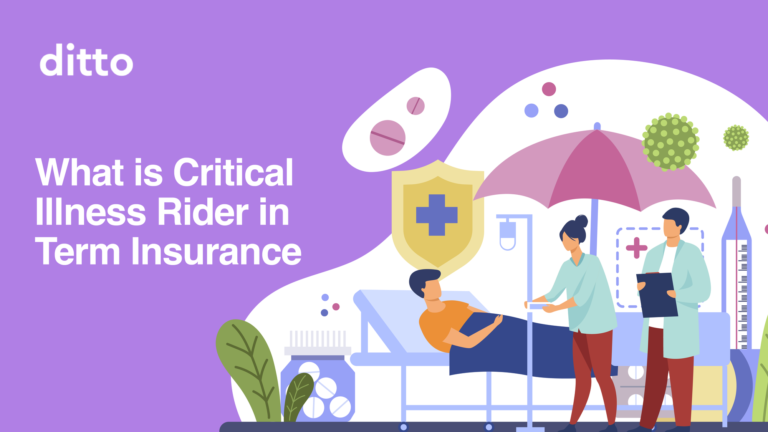Comprehensive Health Insurance for Families: A Guide to Understanding Coverage and Benefits
Introduction
Health insurance is a crucial component of financial planning, especially for families. With the rising costs of medical care, having a comprehensive health insurance plan can provide peace of mind and financial stability. This guide aims to explain what comprehensive health insurance for families entails, the benefits it offers, and how to choose the best plan for your needs. We will also discuss the different types of health insurance plans, what they cover, and how to make the most of your insurance benefits.
What is Comprehensive Health Insurance?
Comprehensive health insurance is a type of health coverage that offers a wide range of medical services. Unlike basic or limited plans, comprehensive plans cover a broad spectrum of healthcare needs, including preventive care, emergency services, hospital stays, prescription drugs, and specialist care. For families, this type of insurance ensures that every member has access to necessary medical care without the burden of high out-of-pocket costs.
Key Features of Comprehensive Health Insurance
- Broad Coverage: Comprehensive plans typically cover a wide range of services, including doctor visits, hospital stays, surgeries, and prescriptions. This means that families can access various types of healthcare services without worrying about gaps in coverage.
- Preventive Care: These plans often include preventive services such as vaccinations, screenings, and annual check-ups. Preventive care is essential for early detection of health issues and maintaining overall well-being.
- Financial Protection: With comprehensive health insurance, families are protected against high medical expenses. This type of insurance usually has lower deductibles and co-pays compared to basic plans, reducing the financial strain during medical emergencies.
- Access to Specialists: Comprehensive plans often allow direct access to specialists without needing a referral from a primary care physician. This is particularly beneficial for families with members who have chronic conditions or special healthcare needs.
Types of Comprehensive Health Insurance Plans
When choosing a comprehensive health insurance plan, it’s important to understand the different types available. Here are some common options:
Health Maintenance Organization (HMO)
HMOs are a popular choice for families due to their affordability and focus on preventive care. In an HMO plan:
- You select a primary care physician (PCP) who coordinates your care.
- You need referrals from your PCP to see specialists.
- The network of doctors and hospitals is usually limited to those within the HMO network.
Preferred Provider Organization (PPO)
PPO plans offer more flexibility compared to HMOs. In a PPO plan:
- You can see any doctor or specialist without a referral.
- You have the option to see providers outside the network, though at a higher cost.
- These plans typically have higher premiums but offer more choices in healthcare providers.
Exclusive Provider Organization (EPO)
EPO plans combine elements of HMOs and PPOs. In an EPO plan:
- You do not need referrals to see specialists.
- You must use the network’s providers for coverage (except in emergencies).
- These plans usually have lower premiums than PPOs but offer less flexibility.
Point of Service (POS)
POS plans are a hybrid of HMO and PPO plans. In a POS plan:
- You choose a primary care physician who provides referrals for specialists.
- You can see out-of-network providers but at a higher out-of-pocket cost.
- These plans offer a balance between cost and flexibility.
Choosing the Right Plan for Your Family
Selecting the best comprehensive health insurance plan for your family requires careful consideration of several factors:
- Coverage Needs: Assess the medical needs of all family members. Consider any chronic conditions, required medications, and the frequency of doctor visits.
- Budget: Evaluate your budget to determine how much you can afford in terms of premiums, deductibles, and out-of-pocket costs. While comprehensive plans tend to be more expensive, they can save money in the long run by covering a wide range of services.
- Provider Network: Ensure that your preferred doctors and hospitals are included in the plan’s network. This is especially important if you have established relationships with certain healthcare providers.
- Benefits and Perks: Look for additional benefits such as wellness programs, telehealth services, and discounts on health-related products and services.
- Customer Service: Consider the insurance company’s reputation for customer service. Check reviews and ratings to ensure you will receive support when you need it.
Maximizing Your Health Insurance Benefits
To get the most out of your comprehensive health insurance plan, follow these tips:
- Regular Check-Ups: Take advantage of preventive care services like annual check-ups, screenings, and immunizations. These services are usually covered at no additional cost and can help detect health issues early.
- Understand Your Plan: Familiarize yourself with your plan’s coverage details, including what is covered, what isn’t, and the associated costs. This will help you avoid unexpected expenses.
- Use In-Network Providers: To minimize out-of-pocket costs, use healthcare providers within your plan’s network. If you need to see a specialist, check if they are in-network.
- Keep Records: Maintain organized records of your medical expenses, treatments, and insurance claims. This will help you track your healthcare spending and ensure you receive the benefits you’re entitled to.
- Ask Questions: Don’t hesitate to contact your insurance company with any questions about your coverage. Understanding your benefits and how to access them is crucial for making informed healthcare decisions.
Benefits of Comprehensive Health Insurance for Families
Financial Security
Medical emergencies can be financially devastating without adequate insurance. Comprehensive health insurance provides a safety net, covering significant portions of medical bills and reducing out-of-pocket expenses. This financial security allows families to focus on recovery rather than worrying about medical costs.
Improved Health Outcomes
Access to a wide range of medical services improves health outcomes. With comprehensive coverage, families can receive timely medical attention, follow-up care, and necessary treatments. Preventive care and early intervention are essential for managing health conditions effectively.
Peace of Mind
Knowing that your family is covered in case of illness or injury brings peace of mind. Comprehensive health insurance ensures that you can access quality healthcare without delay, which is especially important for parents with young children or elderly family members.
Preventive Care
Preventive care is a cornerstone of comprehensive health insurance. Regular check-ups, screenings, and vaccinations help detect health issues early and prevent serious illnesses. This proactive approach to health management keeps families healthier and reduces long-term healthcare costs.
Common Myths About Comprehensive Health Insurance
Myth 1: Comprehensive Plans Are Too Expensive
While comprehensive health insurance plans have higher premiums than basic plans, they offer extensive coverage that can save money in the long run. The cost of treating a severe illness or injury without insurance can far exceed the premiums paid for comprehensive coverage.
Myth 2: Young, Healthy People Don’t Need Comprehensive Coverage
Even young, healthy individuals can face unexpected medical issues, such as accidents or sudden illnesses. Comprehensive health insurance provides protection against these unforeseen events, ensuring that you have access to necessary medical care without financial hardship.
Myth 3: All Health Insurance Plans Are the Same
Health insurance plans vary widely in terms of coverage, costs, and provider networks. It’s essential to compare plans carefully to find one that meets your family’s specific needs. Comprehensive plans generally offer more extensive coverage than basic or limited plans.
Understanding the Costs of Comprehensive Health Insurance
Premiums
The premium is the amount you pay for your health insurance every month. Comprehensive plans tend to have higher premiums because they offer broader coverage. However, paying a higher premium can result in lower out-of-pocket costs when you need medical care.
Deductibles
The deductible is the amount you must pay out-of-pocket before your insurance starts to cover expenses. Comprehensive plans often have lower deductibles compared to basic plans, making it easier to access care without significant upfront costs.
Co-Payments and Co-Insurance
Co-payments are fixed amounts you pay for specific services, such as doctor visits or prescriptions. Co-insurance is the percentage of costs you share with your insurance after meeting your deductible. Comprehensive plans usually have lower co-pays and co-insurance rates, reducing your overall expenses.
Out-of-Pocket Maximum
This is the maximum amount you will pay out-of-pocket for covered services in a policy period. Once you reach this limit, your insurance covers 100% of additional costs. Comprehensive plans typically have lower out-of-pocket maximums, providing greater financial protection.
How to Apply for Comprehensive Health Insurance
Employer-Sponsored Plans
Many employers offer comprehensive health insurance as part of their benefits package. To enroll, you usually need to complete an application during your employer’s open enrollment period. Employer-sponsored plans often have lower premiums due to employer contributions.
Marketplace Plans
You can purchase comprehensive health insurance through the Health Insurance Marketplace. The marketplace offers various plans with different levels of coverage and cost. You may be eligible for subsidies to help lower your premiums based on your income.
Private Insurance
You can also buy comprehensive health insurance directly from private insurance companies. This option gives you the flexibility to choose a plan that best fits your family’s needs. It’s important to compare different plans and providers to find the best coverage and value.
Government Programs
Certain government programs, such as Medicaid and the Children’s Health Insurance Program (CHIP), offer comprehensive health coverage for eligible low-income families. These programs provide a wide range of medical services at little or no cost.
The Future of Comprehensive Health Insurance
Technological Advancements
Technological advancements are transforming the healthcare industry, and health insurance is no exception. Telemedicine, electronic health records, and mobile health apps are improving access to care and making it easier for families to manage their health insurance benefits.
Policy Changes
Healthcare policies continue to evolve, impacting the availability and affordability of comprehensive health insurance. It’s important to stay informed about policy changes and how they may affect your coverage options.
Personalized Plans
Insurance companies are increasingly offering personalized health insurance plans tailored to individual needs. These plans consider factors such as medical history, lifestyle, and specific health conditions to provide customized coverage.
Conclusion
Comprehensive health insurance for families is an essential investment in your family’s health and financial well-being. By understanding the different types of plans, their benefits, and how to choose the right one, you can ensure that your family has access to quality healthcare when needed. Regularly reviewing and updating your coverage can help you stay protected as your family’s needs change. With the right comprehensive health insurance plan, you can enjoy peace of mind knowing that your family’s health is in good hands.






